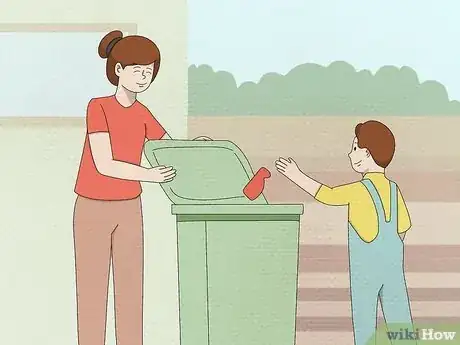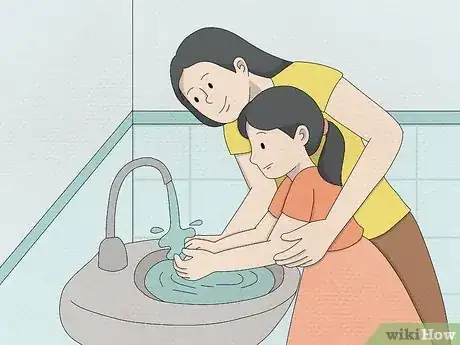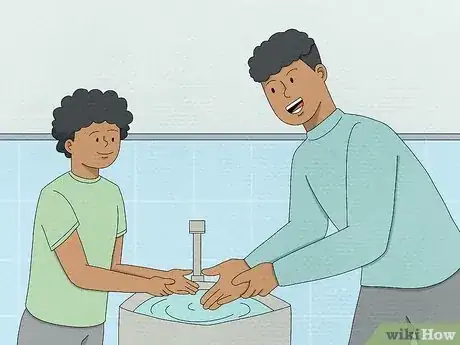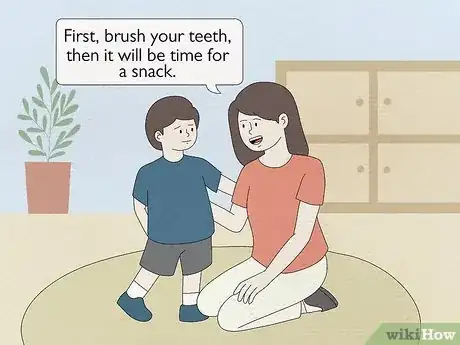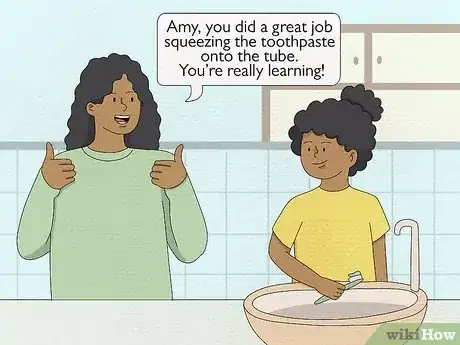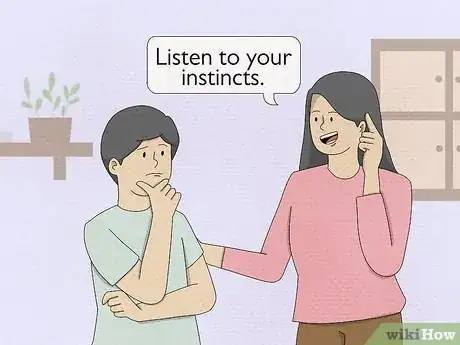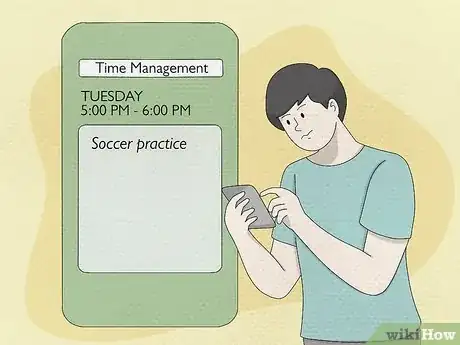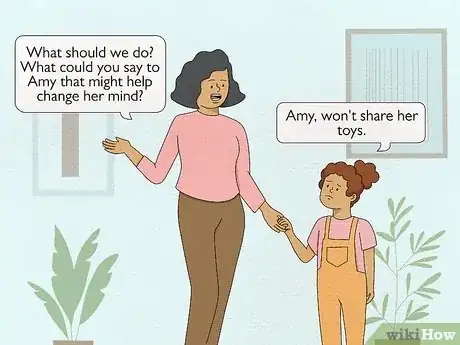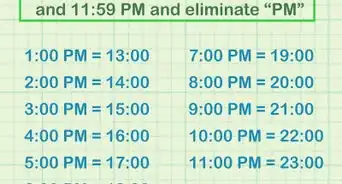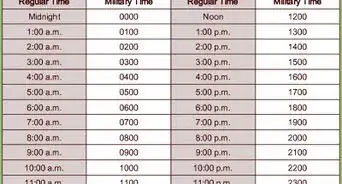This article was co-authored by Rahti Gorfien, PCC. Rahti Gorfien is a Life Coach and the Founder of Creative Calling Coaching, LLC. She specializes in working with artists, entrepreneurs, and college students in creative fields. Rahti is accredited as a Professional Certified Coach (PCC) by the International Coach Federation, an ACCG Accredited ADHD Coach by the ADD Coach Academy, and a Career Specialty Services Provider (CSS). In addition, she has personal experience in the fields she coaches - she is an alumnus of the New York University Graduate Acting program and has been a working theater artist for over 30 years. She was voted one of the 15 Best Life Coaches in New York City by Expertise in 2018.
This article has been viewed 159,055 times.
Maybe you’re trying to help your toddler learn to tie their shoes. Or you could be wanting to help your high-schooler learn some adult skills. Whatever the age of your kids, you can help them learn to be independent and confident. It’s important to help them set goals and make a plan for how to achieve them. Don’t forget to make sure to teach them age appropriate skills. You can help all children be more confident by building them up and helping them to see their great qualities.
Steps
Helping Younger Children Learn Independence
-
1Set age appropriate goals. You can help your child become independent by teaching them to do things on their own. Make sure that you know what to expect from your child at different ages. You want to set age appropriate goals so that your child doesn’t get frustrated.[1]
- Children between 18 and 36 months can do things like: wash hands with help, learn to use the toilet, and put clothes in the hamper.
- Children around 3 years old can often: put things in the trash, brush teeth (with help), and carry non breakable dishes from the table.
- Children who are 4 and 5 can begin to: dress by themselves, understand 2 step directions, and follow simple routines.
-
2Create clear, simple steps. Whether you are teaching a new skill or setting a routine, give your child easy to follow instructions. Break the skill into small steps. Talk your child through each step.[2]
- For example, maybe you are teaching your child to wash hands. You could break that down into small steps like: climb on the step stool, turn on water, hold hands under water, put soap on hands, rub hands together, rinse under water, and dry hands on towel.
- Since you're walking your child through these steps, you don't need to worry right away about whether or not they can memorize multiple steps. That will come with time and repetition.
Advertisement -
3Model every activity. One of the best ways to teach your children is to demonstrate. As you are talking, do the actions that you are describing. For example, if you are explaining hand washing, go through each step as you describe it to your child. You can do it first, or alongside them.[3]
-
4Use “first/then” phrasing. Sometimes your child might not like certain activities. For example, they could dislike brushing their teeth. Tell them “First, brush your teeth, then it will be time for a snack.” [4]
- You could also say something like, “First, put your toys away. Then we can play with the puppy.” This phrasing can help encourage kids to do things they dislike.
-
5Give the child a choice. Part of teaching independence involves helping kids make decisions. You can build up to actual decisions by starting with choices. Incorporate them into daily activities.[5]
- For example, if you are teaching them to get dressed, you can say, “Would you like to wear the red shirt or the blue one?”
- If you are trying to get them to eat a healthy snack, say, “Do you want a banana or an apple?”
-
6Use encouraging words. Although these activities are simple for adults, remember that they are new and sometimes hard for kids. Be patient and use encouraging words. Each time your child tries a new skill, reward them with positive words.[6]
- You can say: “Amy, you did a great job squeezing the toothpaste onto the tube. You’re really learning!”
- Even when your child makes a mistake, you can correct them while being kind. Try "Ethan, that's not where our toys go. I bet next time you will put them in the right bin! You're getting good at that."
Cultivating Independence in Teens
-
1Teach accountability. Older children, such as tweens and teens, can learn to develop important skills that will help them feel and act independent. When you teach accountability, show your kid that choices and consequences are connected. Give them some specific examples that they can relate to.[7]
- For example, you can say, “You chose to hang out with friends instead of mowing the lawn. That means that you won’t be getting your allowance this week.”
- Sometimes it might be helpful to offer a warning: "If you don't keep your grades up, you're going to lose your phone privileges." It's up to you whether or not you want to let kids make mistakes first and then discover the consequences.
-
2Help them build a work ethic. Tell your children that hard work can help them get what they want. Sit down with your teen and help them set some clear goals. Then help them come up with specific ways to meet those goals.[8]
- You could say, “If you want to buy that expensive jacket, you will need to get a part-time job to pay for it.”
- Or it could be, “If you want to go to college out of state, you will need to get excellent grades so that you can get a scholarship.”
-
3Set boundaries. As your child grows older, they will naturally want to be more independent. You might be hesitant to let your “baby” grow up, but it’s important for their development. Setting some clear boundaries will help both of you feel comfortable with the teen doing more on their own.[9]
- When you set these boundaries, make sure to detail the consequences that will come if they ignore the rules.
- If your teen wants to go to a party, set some clear rules such as being home at a certain time, not drinking, and making sure there is adult supervision. Emphasize that if they don't follow the rules, they will lose social privileges.
-
4Teach good decision-making. Your child needs to learn to make their own decisions in order to be independent. Help them by talking about how to make those decisions good ones. Teaching good decision making helps you raise a confident child. Teach them that for each big decision, they should:[10]
- Stay calm and take time to think it through.
- Brainstorm multiple ideas.
- Make a list of pros and cons.
- Listen to their instincts.
-
5Explain money management skills. To become more independent, your child should learn to manage their own money. You can help them to do this by teaching a variety of skills. You can encourage them to earn their own money, either around the house or with a part-time job. Let them decide how to spend their money. If they make a mistake, that’s ok. They’ll learn from it.[11]
- Help your child open their own bank account.
- Sit down with them and set some clear goals for saving money.
-
6Show them how to manage their time. Time management is another critical skill. Your kids need to learn how to manage their own schedule. Help them figure out how long things realistically take. Then, sit down and write a weekly schedule with them.[12]
- Include specific items such as: “Tuesday--soccer practice from 5-6 p.m.”
- Help your teen use an app on their phone or computer to view their calendar and upcoming activities.
- Time management can take some time to learn. Help your teen by reminding them of important things. You can also ask them if they've followed through on everything they need to get done. However, make it clear that they are responsible for knowing their own schedule and sticking to it.
Building Confidence in Children
-
1Pay attention to your compliments. You might be tempted to give your kids over the top praise. But even young kids can tell when you are exaggerating. Be mindful with your compliments. Make sure they are specific and accurate.[13]
- Instead of saying, “That is the best drawing of a dog that ever existed!”, say “I really like how you drew Max with a smile on his face.”
- Say, “Your free throws are really improving thanks to your hard work!” instead of “You are hands down the best player on the team!”
-
2Nurture their skills and interests. Kids of all ages do best when they are working on skills that they like and have talent for. Make sure to encourage their talents. If your young child loves to draw, buy them a special set of markers or pencils. If your teen is really into acting, encourage them to sign up for drama club.[14]
-
3Teach problem solving skills. Solving their own problems can really help kids build their confidence. They will feel more capable and in control. When your child comes to you with a problem, help them figure out a solution.[15]
- If your 5 year old comes to you and says, “Amy won’t share her toys,” you can say, “What should we do? What could you say to Amy that might help change her mind?” If they seem stumped you can give them some suggestions, such as, "Did you say please? Did you offer to share your own toys?"
- If your teen is struggling in math class, you could say, “What would help you succeed? Are there different study habits you could try?” If they are unsure, you could say, "Do you think you could try reviewing your notes for 10 minutes a day? What else might work?"
-
4Model a positive attitude. Whether they are young or nearly grown, kids will follow your example. If they see you beating yourself up, they might think that’s ok. Model a confident attitude. For example, if you burn dinner, don’t overreact. Say, “Oh, well. At least I tried that new recipe! I know what I did wrong and I’ll do better next time!”[16]
-
5Focus on strengths. Build your child up by helping them concentrate on the positives. If they aren’t doing well at soccer, remind them that they are doing a great job of being a supportive teammate. If they didn’t get the part they wanted in the school play, remind them that they’ll now have time to focus on winning that art competition.[17]
- Have your child write a list of things they are good at. They can include positive character traits. Have them pull the list out when they’re feeling low.
Expert Q&A
-
QuestionHow do you make a sad kid happy?
 Rahti Gorfien, PCCRahti Gorfien is a Life Coach and the Founder of Creative Calling Coaching, LLC. She specializes in working with artists, entrepreneurs, and college students in creative fields. Rahti is accredited as a Professional Certified Coach (PCC) by the International Coach Federation, an ACCG Accredited ADHD Coach by the ADD Coach Academy, and a Career Specialty Services Provider (CSS). In addition, she has personal experience in the fields she coaches - she is an alumnus of the New York University Graduate Acting program and has been a working theater artist for over 30 years. She was voted one of the 15 Best Life Coaches in New York City by Expertise in 2018.
Rahti Gorfien, PCCRahti Gorfien is a Life Coach and the Founder of Creative Calling Coaching, LLC. She specializes in working with artists, entrepreneurs, and college students in creative fields. Rahti is accredited as a Professional Certified Coach (PCC) by the International Coach Federation, an ACCG Accredited ADHD Coach by the ADD Coach Academy, and a Career Specialty Services Provider (CSS). In addition, she has personal experience in the fields she coaches - she is an alumnus of the New York University Graduate Acting program and has been a working theater artist for over 30 years. She was voted one of the 15 Best Life Coaches in New York City by Expertise in 2018.
Life Coach You have to be willing to let your child be unhappy. Trying to keep them happy all the time is debilitating to their learning process. When children are unhappy, they can better learn strength and independence. They'll understand that it's okay if some people don't like them or aren't nice to them.
You have to be willing to let your child be unhappy. Trying to keep them happy all the time is debilitating to their learning process. When children are unhappy, they can better learn strength and independence. They'll understand that it's okay if some people don't like them or aren't nice to them. -
QuestionWhat if my dad won't let me walk anywhere on my own and forces me to go to after school care? I hate it and have told him, but he doesn't care. What do I do?
 Community AnswerSit down with him one night and patiently explain that you need a little more freedom and independence. Bring up the ways you've demonstrated responsibility (getting good grades, doing your chores, taking care of pets, etc.). Tell him you'd really appreciate being given the chance to look after yourself after school. Ask him to just think it over, and then give him some time to do so.
Community AnswerSit down with him one night and patiently explain that you need a little more freedom and independence. Bring up the ways you've demonstrated responsibility (getting good grades, doing your chores, taking care of pets, etc.). Tell him you'd really appreciate being given the chance to look after yourself after school. Ask him to just think it over, and then give him some time to do so.
References
- ↑ http://csefel.vanderbilt.edu/documents/teaching_routines.pdf
- ↑ http://csefel.vanderbilt.edu/documents/teaching_routines.pdf
- ↑ http://csefel.vanderbilt.edu/documents/teaching_routines.pdf
- ↑ http://csefel.vanderbilt.edu/documents/teaching_routines.pdf
- ↑ http://csefel.vanderbilt.edu/documents/teaching_routines.pdf
- ↑ http://csefel.vanderbilt.edu/documents/teaching_routines.pdf
- ↑ https://www.psychologytoday.com/blog/surviving-your-childs-adolescence/200907/teaching-your-adolescent-independence
- ↑ https://www.psychologytoday.com/blog/surviving-your-childs-adolescence/200907/teaching-your-adolescent-independence
- ↑ https://parents.au.reachout.com/skills-to-build/wellbeing/things-to-try-self-confidence/teach-your-teenager-to-be-independent
- ↑ https://parents.au.reachout.com/skills-to-build/wellbeing/things-to-try-self-confidence/teach-your-teenager-to-be-independent
- ↑ https://parents.au.reachout.com/skills-to-build/wellbeing/things-to-try-self-confidence/teach-your-teenager-to-be-independent
- ↑ https://parents.au.reachout.com/skills-to-build/wellbeing/things-to-try-self-confidence/teach-your-teenager-to-be-independent
- ↑ http://www.parents.com/toddlers-preschoolers/development/fear/secrets-of-confident-kids/
- ↑ http://www.parents.com/toddlers-preschoolers/development/fear/secrets-of-confident-kids/
- ↑ http://www.parents.com/toddlers-preschoolers/development/fear/secrets-of-confident-kids/
- ↑ http://kidshealth.org/en/parents/self-esteem.html#
- ↑ http://kidshealth.org/en/parents/self-esteem.html#
